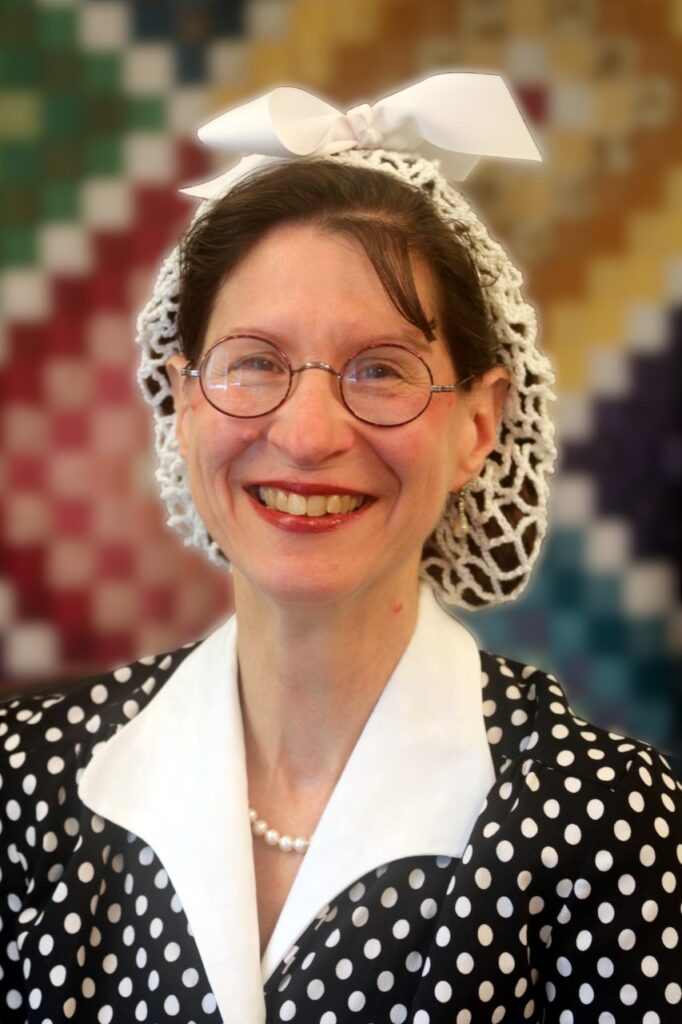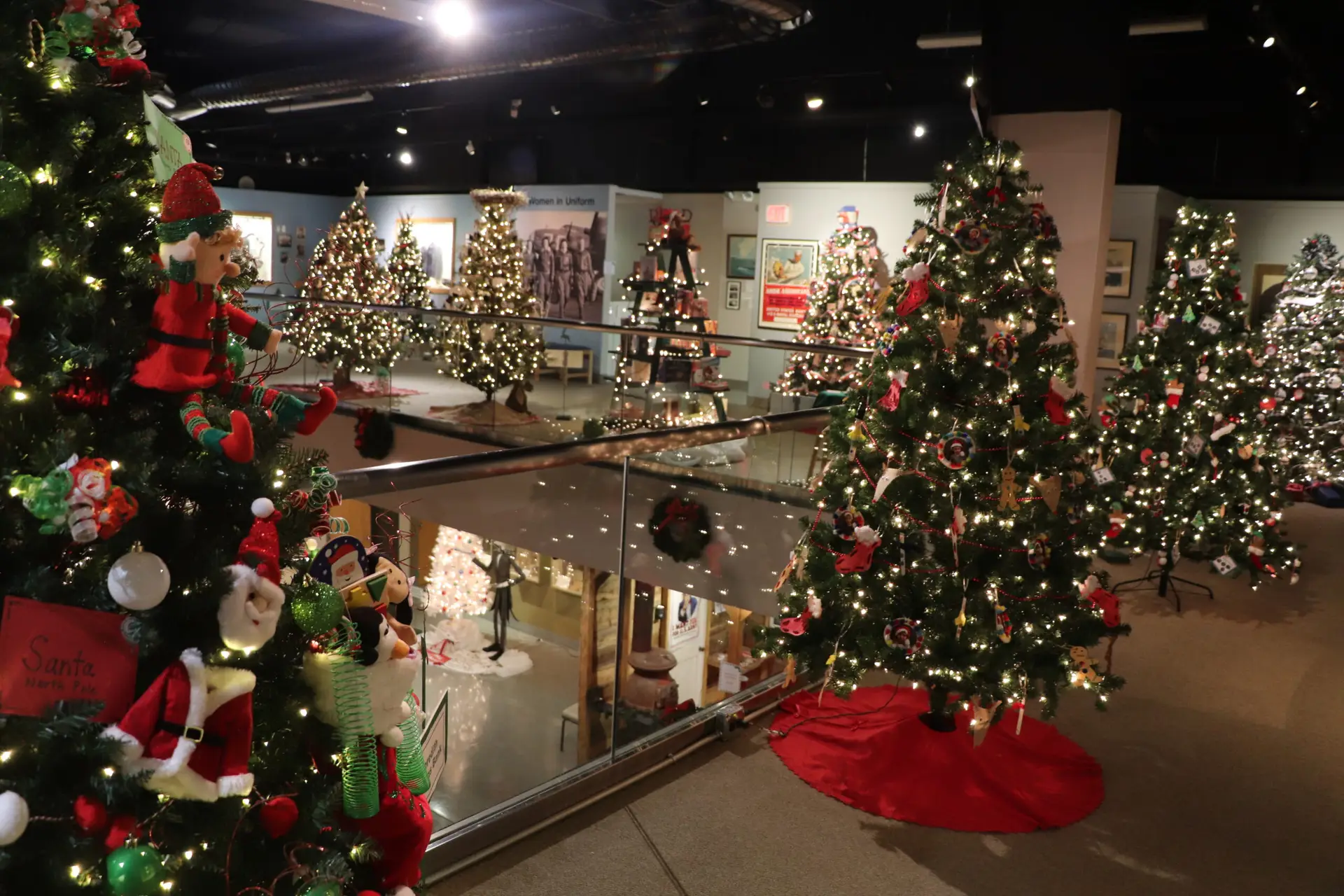For volunteer Linda Shenton Matchett, a big part of her joy in time spent at the Wright Museum of World War II in Wolfeboro is the interaction with visitors.
“Many share their memories or stories about loved ones when they are here,” she said. “I also enjoy watching patrons’ eyes light up when a particular exhibit resonates with them.”
Shenton Matchett is also intimately involved with other aspects of the museum, including as archivist, a unique role in which she “handles items someone held themselves in the past.”
“It is exciting,” she said. “Occasionally, research is necessary, and I learn something new about an aspect of the war, too.”
For Shenton Matchett, who is also an author, such research enhances her writing.
“I set my stories during the WWII era to honor the ordinary men and women who did extraordinary things,” she said.
Citing a corporate employment background in Human Resources, Shenton Matchett is particularly fascinated by the history of women in the workplace, especially during World War II when “they flooded every industry to replace the void left by men.”
“They raised their hands to do jobs they weren’t even sure they knew how to do, but were willing to learn,” she explained.
As an example, she cited most women in the 1940s did not know how to drive.
“Families owned one car and dad drove it to work,” she said. “Gals who went to work for the Women’s Land Army, though, learned how to drive so they could operate the farm machinery necessary to sow and harvest the crops.”
Some learned to drive, she said, so they could serve as ambulance drivers.
“Others learned how to drive motorcycles so they could be part of the messenger service,” she added.
In 2021, Shenton Matchett plans to speak in the Wright Museum’s Lecture Series, presented by Ron Goodgame & Donna Canney, about her book, Spies & Sweethearts. It is the first book in the Sisters in Service fiction series.
“It is the story of Emily, Doris and Cora Strealer, who choose to support the war effort in jobs that are atypical for women of the time period,” she said.
In Spies & Sweethearts, Emily serves as a radio operator for the Office of Strategic Services (OSS) in occupied France.
“Her partner is a senior agent who is not happy about being saddled with a rookie who is also a woman,”she said. “When their cover is blown, they flee toward neutral Switzerland with the Nazis one step behind them.”
In looking to the future for The Wright, Shenton Matchett expressed optimism for its continued growth.
“I’ve visited numerous museums around the US as well as the Imperial War Museum in London, and the Wright Museum can hold its own against any of them,” she said. “Because the breadth of information is presented in various ways, displays appeal to people of all ages…The Wright Museum should be on everyone’s bucket list.”
The region’s leading resource for educators and learners of all ages on World War II, The Wright features more than 14,000 items in its collection that are representative of both the homefront and battlefield.





